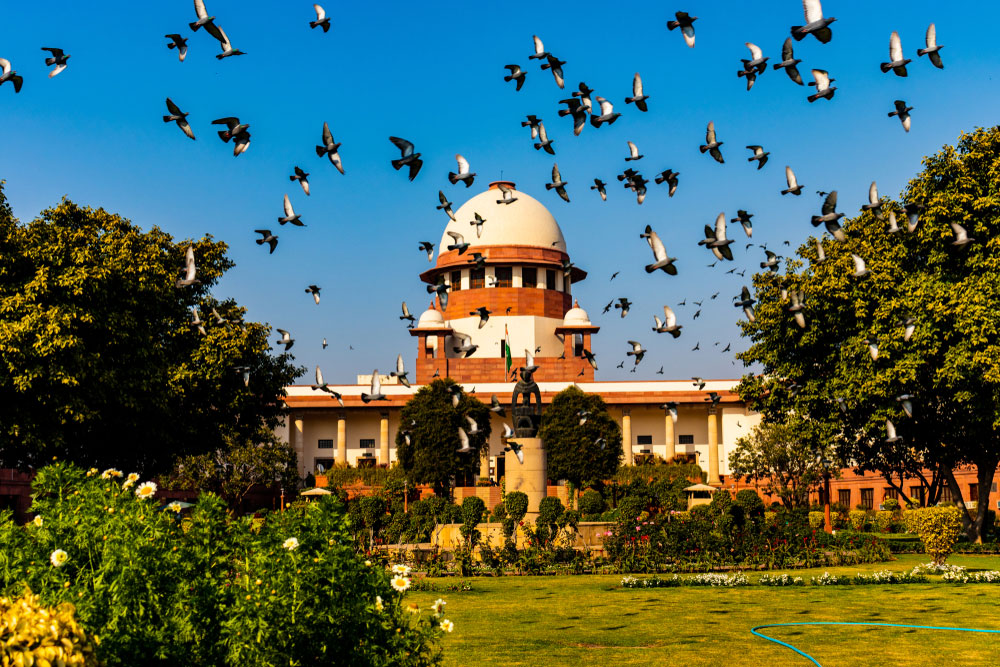The Supreme Court on Wednesday declined to stay the Citizenship (Amendment) Act or the National Population Register, against which ordinary citizens have come out on the streets across the country.
A three-judge bench, headed by Chief Justice S.A. Bobde, gave the Centre four weeks to submit its reply to the 140-odd petitions against the new citizenship matrix and adjourned the matter for five weeks.
On a petition by the Centre, the bench — that also included Justices Abdul Nazeer and Sanjiv Khanna — restrained all the high courts from passing any order on the CAA.
The court said the petitions, filed by individuals and organisations, would be heard by a constitution bench.
Attorney-general K.K. Venugopal, appearing for the Centre, opposed any stay on the CAA or postponement of the NPR, which is seen as the first step to the proposed National Register of Citizens (NRC).
Senior advocate Kapil Sibal, leading a battery of lawyers on behalf of various petitioners, pleaded that there should be at least a “postponement” of the NPR till the adjudication of the dispute by the court.
CJI Bobde said: “We are not going to give any stay. You (Sibal) are asking for a stay without using the expression stay.”
The court told another senior advocate, Vikas Singh, that it cannot pass any ex-parte order (without hearing the other side) after he pleaded for a stay on the CAA exercise at least for Assam because the issue of the cut-off date for citizenship is already pending before another constitution bench.
“We are not going to pass an ex-parte order without the copy being served to the Centre, you serve the copy on them (centre) we will look into it,” the CJI told Singh.
Another senior advocate, K.V. Viswanathan, submitted that there should be a stay on the NPR exercise as it might weed out bona fide citizens on the ground of “doubtful status on citizenship.”
Senior advocate Abhishek Manu Singhvi endorsed this and said the Uttar Pradesh government had already started the process of identifying “doubtful” citizens.
The CJI declined a stay. However, he said: “The matter is uppermost in everybody’s mind. We will form a 5-judge bench and then list the case.”
Justice Bobde said that since there are over 140 petitions, the bench would hold in-chamber consultations to decide on how to proceed with hearing the matter.
The court agreed to take up separately the petitions from Assam and Tripura.
Attorney-general Venugopal agreed with senior advocate Vikas Singh that the petitions relating to Assam and Tripura could be taken up separately because these two states had their own unique problems.
The majority of the petitioners have challenged the CAA on the ground that it is unconstitutional because it seeks to discriminate between religious communities by offering citizenship rights only to Hindus, Christians, Buddhists, Sikhs, Jains and Parsis from Pakistan, Bangladesh and Afghanistan, while leaving out Muslims.
Some of the petitioners from Assam and Tripura have challenged the CAA on the ground that it would lead to further demographic destruction of the ethnic population already facing infiltration from across the border.
Venugopal told the court the final NRC prepared for Assam would not become operational until it is notified by the Registrar General of India.











